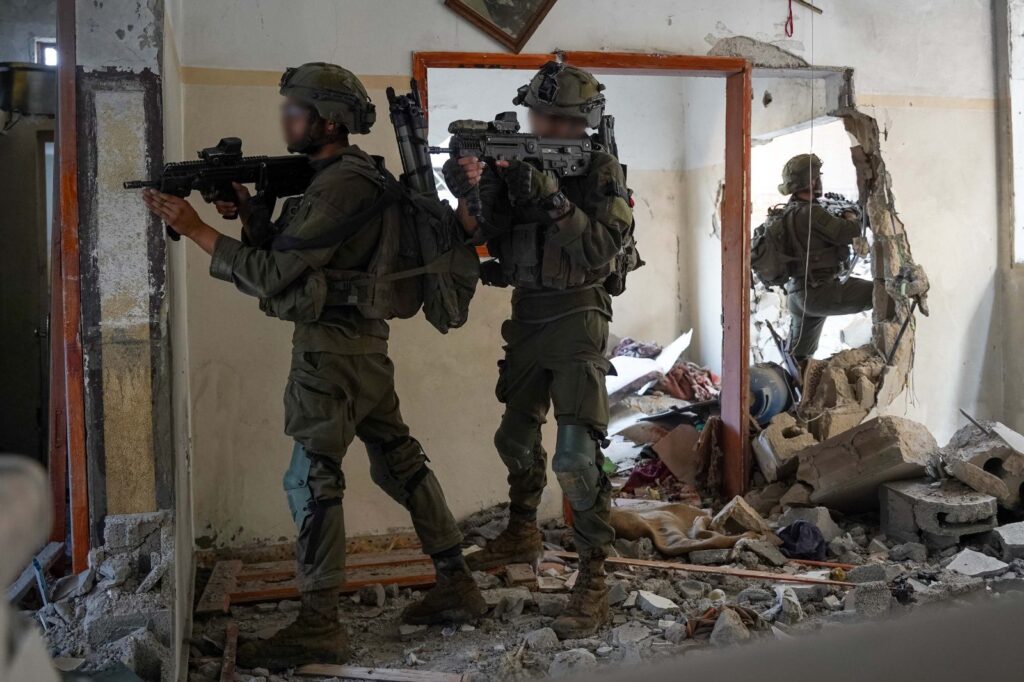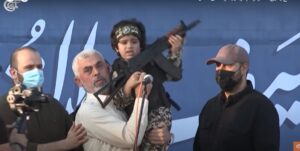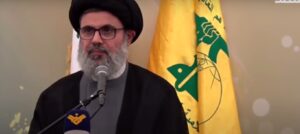In an unexpected move, the IDF initiated this new phase by withdrawing forces from the north of the Strip and the release of thousands of reservists.
Officially dismantling Hamas’s military presence in the northern Gaza Strip, the IDF transitioned to a modified operational mode involving limited raids on terrorist targets based on precise intelligence and operational needs.
Approximately one million Palestinians displaced from the northern Gaza Strip seek to return home, but the IDF, fearing the resurgence of Hamas in the area, maintains the “Netsarim corridor” to prevent their return.
The Biden administration is urging Israel to reconsider this stance, prompting discussion in the defense cabinet.
Chief of Staff Hertzi Halevi anticipates 2024 to be a year of continued conflict, prompting the release of many reserve soldiers to sustain the IDF’s efforts.
Simultaneously, the IDF is expanding operations in refugee camps in central Gaza and the Khan Yunis area.
The IDF’s focus on Khan Yunis, where Hamas military leadership, led by Yahya Sinwar, operates underground, includes the deployment of seven brigades, including special forces.
The objective is to reach Israeli hostages and neutralize key figures within Hamas’s military wing.
Discussions between Israel, the U.S., and Egypt revolve around the potential occupation of the Rafah area and the “Philadelphia Corridor.”
Israel has requested Egypt’s cooperation in securing the border to prevent weapons smuggling into Gaza.
While Egypt’s response remains uncertain, there is speculation that Israel may need to occupy these areas to eliminate Hamas strongholds.
The IDF aims to reduce casualties and operational strain by altering its Gaza Strip approach.
As the military pressure on Hamas persists, the focus also extends to dismantling terrorist infrastructure and preparing for the post-war era.
The release of reserve soldiers will contribute to economic recovery and potential reallocation of resources against other threats, including Hezbollah.
In parallel with military actions, Israel must actively engage in preparing for Gaza’s reconstruction post-conflict, signaling determination to avoid a return to pre-war conditions.
The primary focus should involve destroying Hamas’s military infrastructure in Khan Yunis and subsequently securing the “Philadelphia Corridor” to cut off weapon supplies.
Allowing Palestinian residents to return to the northern Strip is conditional on establishing a buffer zone for security, preventing Hamas’s re-establishment.
Simultaneously, facilitating humanitarian aid to Gaza is crucial, providing political leverage for Israel.
The IDF’s success in Khan Yunis may dictate the war’s outcome, pressuring Hamas into negotiations for the release of Israeli hostages.
Anticipating Hamas’s guerilla tactics, the IDF must persevere in thoroughly cleaning the area and preparing for demobilization.
International collaboration is essential to cut off Hamas’s funding sources and prevent weapons smuggling.
Maintaining the strategic alliance with the U.S. is paramount, with both nations sharing the goal of ending Hamas rule in Gaza.
Israel should promptly engage in discussions with the Biden administration regarding the nature of a new Palestinian rule in Gaza after Hamas.
Potential compromise involves the return of the Palestinian Authority with comprehensive anti-terrorism reforms.
It is imperative for the security cabinet to promptly discuss these ideas to conclude the Gaza conflict, establish a Palestinian civil administration, and continue the IDF’s counter-terrorism efforts.
Any delay in preparations may jeopardize Israel’s interests and strengthen Hamas’s resurgence plans.



